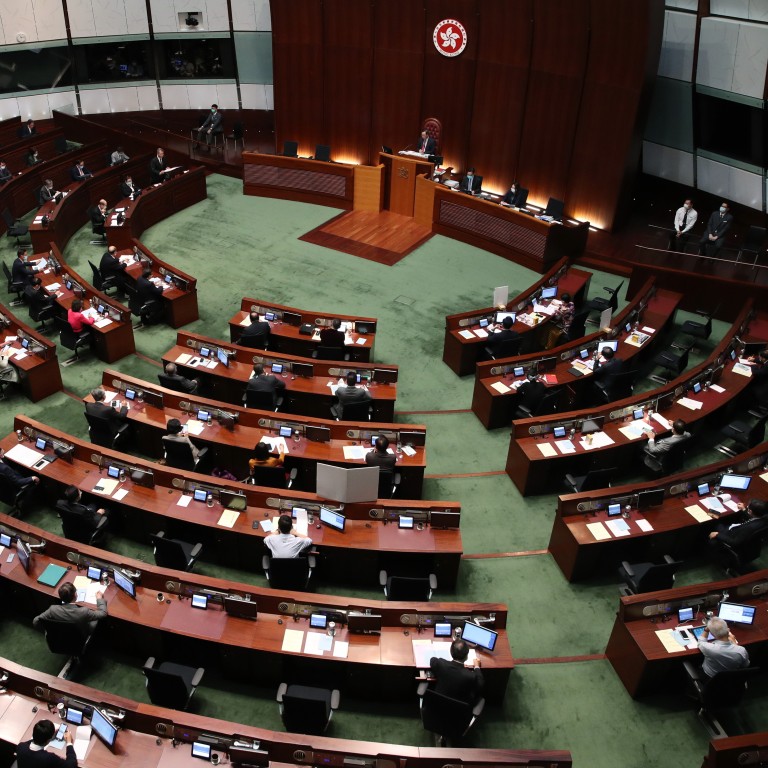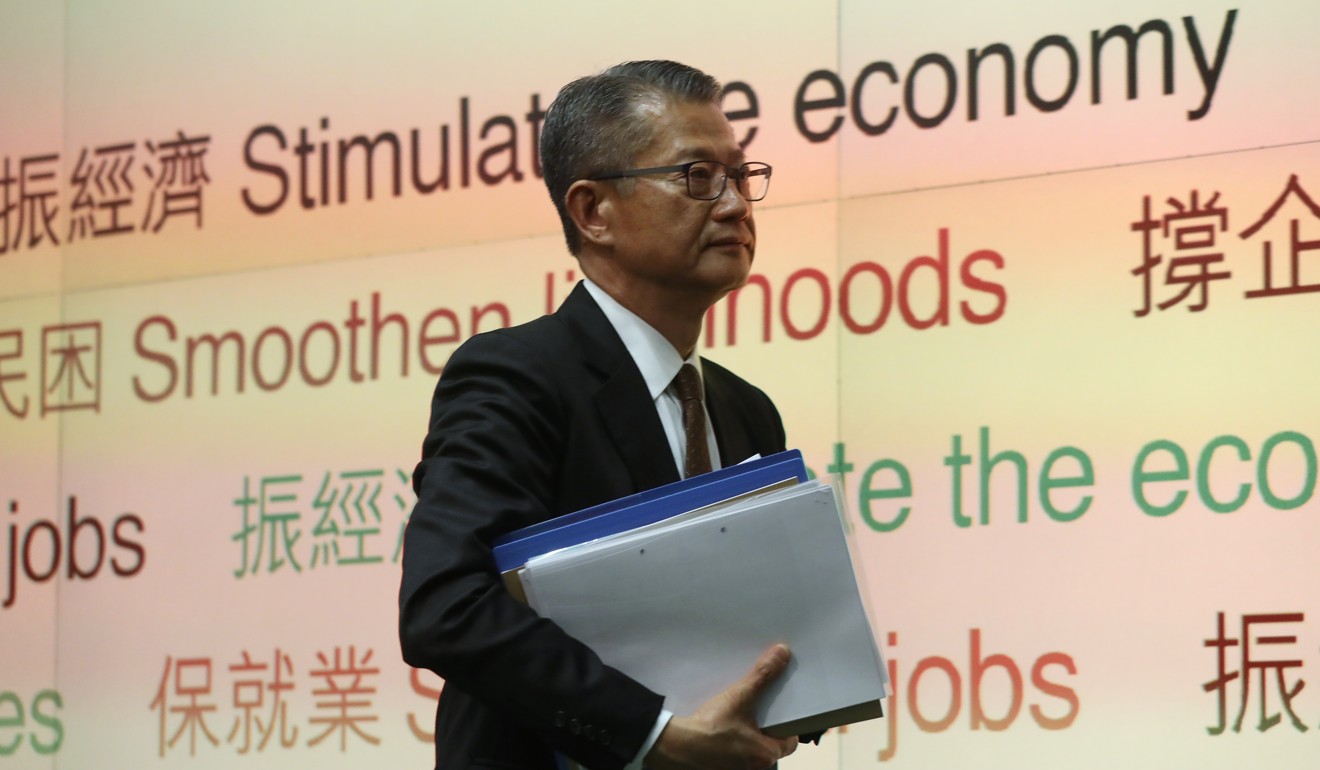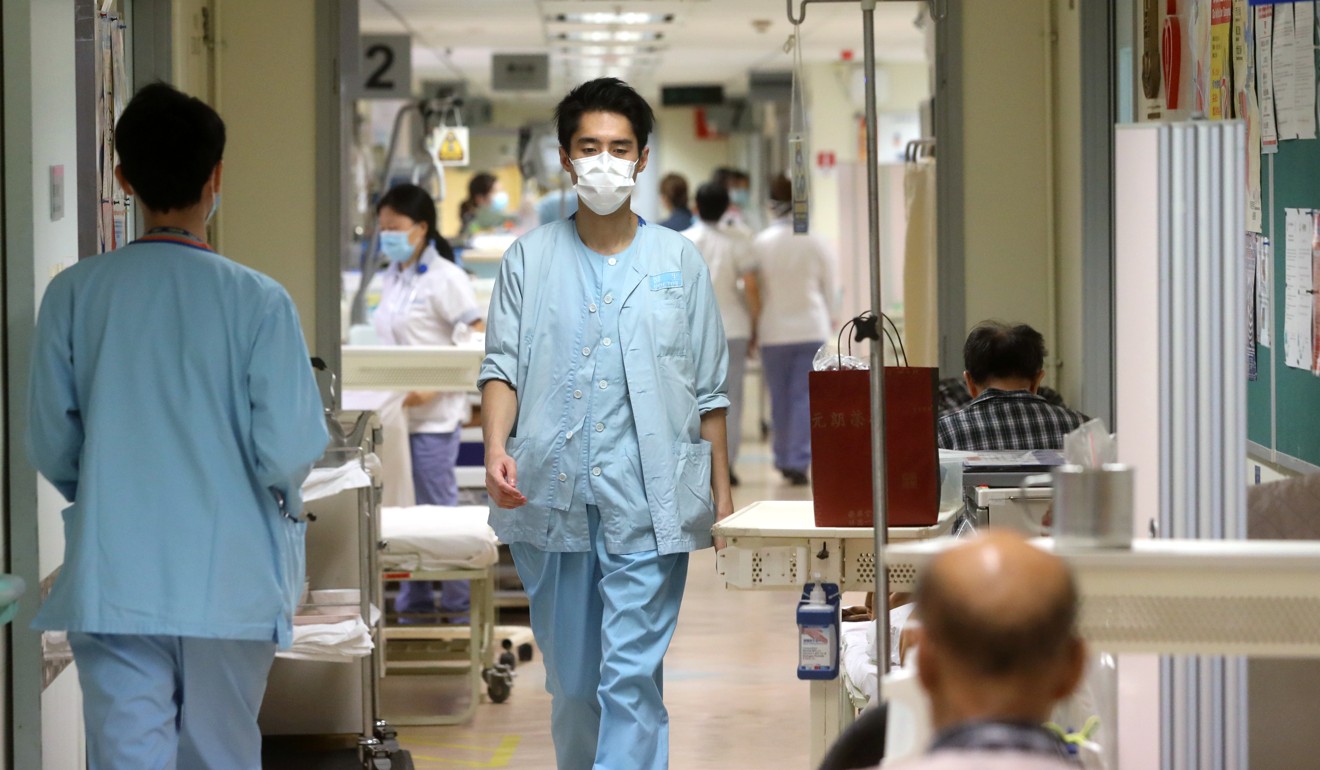
Hong Kong budget: with years of deficits looming, city must find new revenue streams and areas for economic growth, experts warn
- Economists warn city is running structural deficit earlier than had been expected
- Next year’s deficit will hit all-time high of HK$139.1 billion because of one-off relief measures
The Hong Kong government’s decision to go into the red this year – and for the next five – has sparked calls from financial experts for it to come up with a more comprehensive strategy to seek other revenue streams and identify new areas of economic growth.
Some warned that the city was facing a structural deficit a year earlier than government advisers had predicted, despite denials from the finance chief on Wednesday.
Economists in the government’s Working Group on Long-Term Fiscal Planning warned six years ago that there could be a structural deficit by 2021, as increases in expenditure exceeded revenue growth as a result of the ageing population.
The administration predicted there would be deficits over the next five years, ranging from HK$7.4 billion to HK$17 billion. Next year’s would also hit an all-time high – of HK$139.1 billion – because of one-off relief measures.
“In the context of a budget of about HK$600 billion, I would argue that it is kind of broadly balanced,” he said, adding that 2020/21 was an exceptional year.
“At this stage, jumping to the conclusion on entering into a structural deficit may be premature.”
Police to get 2,500 new posts in ‘biggest manpower boost since 1997’
But an expert group member, Marcellus Wong Yui-keung, a former president of the Taxation Institute of Hong Kong, disagreed, saying the city was already running a structural deficit, considering the “speedy and continual shrinking” of its fiscal reserves.
The reserves, equivalent to 22 months of government expenditure, are predicted to drop next year to less than 20 months’ spending for the first time in a decade, and continue to shrink to 15 months in 2024.
“There won’t be a problem running a deficit for one or two years but the government expects one for the next five years,” Wong said, adding it would affect policy decisions in the long run.

To prevent the city’s fiscal health from deteriorating, he urged the government to gradually reduce the growth of recurrent expenditure and explore new revenues after the coronavirus outbreak was contained.
The government’s recurrent expenditure has continued to rise, from HK$150 billion in 1997 to almost HK$500 billion in the current financial year.
But the chances of reducing that remained slim, according to a finance official speaking on condition of anonymity, as the government had attached huge importance to education, social welfare and health, which accounted for 44 per cent of the total spending of HK$731.1 billion.
Hong Kong budget: can spending big fight off city’s virus woes?
“It’s quite impossible to scale down existing projects,” he said. “The only thing we can do is to act more prudently in approving new items.”
Although the city’s fiscal reserves would stand at nearly HK$1 trillion in the coming six years, significant amounts would be needed to provide funding already earmarked for two 10-year Hospital Development Plans, costing HK$500 billion, and infrastructure projects approved by the Legislative Council totalling HK$390 billion.
At the same time, revenue from land sales, a major source of government income, will fall. While it is expected to generate HK$141.6 billion this year, the government estimated a 17 per cent drop next year, to HK$118 billion.

Dr Billy Mak Sui-choi, associate professor of finance and decision sciences at Baptist University, warned that the government’s heavy reliance on income from land premiums, stamp duties and investments had placed the public finances in “a very unhealthy state”.
“Most of these revenues are subject to the macroeconomic situation and can fluctuate a lot. To improve fiscal sustainability, the government should explore ways to increase recurrent revenues,” he said, mentioning adjusting tax rates as an option.
Tax rates may be revised to boost Hong Kong’s competitiveness, growth
Terence Chong Tai-leung, associate professor at Chinese University’s department of economics, did not agree that Hong Kong had run into structural deficits, considering the many years of huge surpluses obtained from various investments.
“The potential in investment has not been developed to the fullest. The government can earn much more,” he said.
He called on the administration to identify new areas of economic growth and explore imposing a capital-gains tax or raising betting duty.
Additional reporting by Gary Cheung, Lilian Cheng and Tony Cheung

